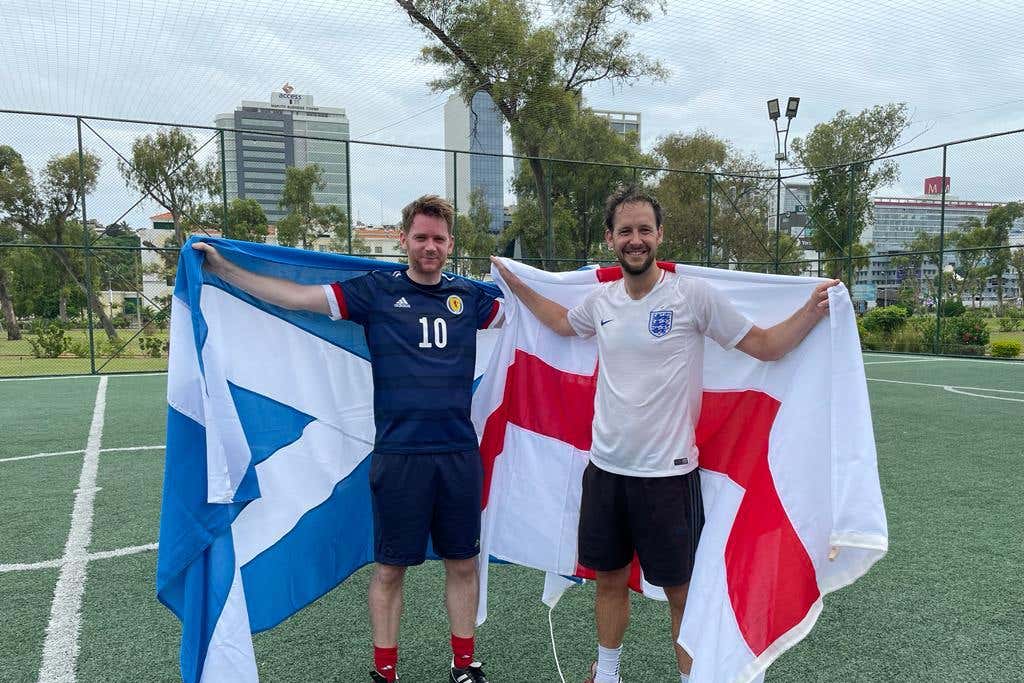Charity games mark 150th anniversary of first international football match
Scotland and England drew 0-0 at the West of Scotland Cricket Ground in Glasgow on November 30 1872.

Your support helps us to tell the story
From reproductive rights to climate change to Big Tech, The Independent is on the ground when the story is developing. Whether it's investigating the financials of Elon Musk's pro-Trump PAC or producing our latest documentary, 'The A Word', which shines a light on the American women fighting for reproductive rights, we know how important it is to parse out the facts from the messaging.
At such a critical moment in US history, we need reporters on the ground. Your donation allows us to keep sending journalists to speak to both sides of the story.
The Independent is trusted by Americans across the entire political spectrum. And unlike many other quality news outlets, we choose not to lock Americans out of our reporting and analysis with paywalls. We believe quality journalism should be available to everyone, paid for by those who can afford it.
Your support makes all the difference.The 150th anniversary of what is reckoned to be the world’s first international football match is being celebrated with charity games in the UK and abroad.
On November 30 1872, Scotland and England drew 0-0 in front of 4,000 spectators at the West of Scotland Cricket Ground in Glasgow.
The fixture is claimed to be the first official international match in the world.
This year, on the same date – which also marks St Andrew’s Day – staff from the Foreign, Commonwealth and Development Office (FCDO) have decided to host their own Scotland v England matches to mark the historic event.
English World Cup winner Jack Charlton’s granddaughter Kate Wilkinson, who moved to Scotland six years ago to work for the FCDO, will be taking to the pitch for England in a charity match at the FCDO’s joint HQ, Abercrombie House, in East Kilbride on Sunday.
The event is raising funds jointly for the East Kilbride Community Trust and Women’s Aid South Lanarkshire and East Renfrewshire.
Ms Wilkinson said the anniversary match makes her think of her grandfather, who died in 2020, and his brother Bobby, both football legends who were members of the England team that won the 1966 World Cup.
Speaking ahead of the fundraiser event, the 28-year-old said: “My grandad loved England v Scotland games and used to joke to fans that if he had not got injured in the famous 1967 match, Scotland would never have won 3-2.
“There were no substitutes allowed back then so my grandad was forced to hobble around as a striker for most of the match after breaking his toe early on. He still managed to score a goal.
“I’m very much looking forward to helping celebrate the 150th anniversary of the fixture, although I’ve told my team not to expect much from me – I’ve got two left feet.
“Funnily enough, the Charlton soccer skills did not pass down from either Jack or Bobby to the rest of the family. There was no danger of me being part of the England Lioness’ Euro winning side this summer.”
The FCDO said diplomats working overseas in countries including Mozambique, Poland and Serbia have also been celebrating the historic fixture’s 150th birthday with commemorative matches.
Scots diplomat Euan Davidson and English colleague Freddie Brunt skippered the sides for a Scotland v England six-a-side match in Maputo, Mozambique, on Sunday, with The Dark Blues winning 9-5.
Mr Davidson said: “It was a great game for the neutral, with England regaining the lead in the last 10 minutes before Scotland came back to secure a historic win.
“What the Scottish players lacked in fitness, skills and ability, we made up for with some creative signings, drawing on Mozambicans, Brazilians and Dutch players to score all our goals.”
Staff in Warsaw, Poland braved snow and sub-zero temperatures to play their game, while in Belgrade, Serbia diplomats Lara Bryden and Thomas Wright challenged themselves to a Scotland v England Subbuteo game during a St Andrew’s Day event held at the British Embassy. Their match finished 1-1.
Some football groups argue the world’s first football international, England v Scotland, was played on March 5 1870, with 22 men playing out a 1-1 draw at the Kennington Oval in London.
Coverage of the match provoked a backlash amongst football clubs in Scotland at the time, who claimed that the Scottish team, which was made up of London-based Scots, was not representative of footballers from their country.
This is why the Scotland v England match two and a half years later has been considered as the first official international, because the England team travelled up from London to Glasgow before playing a team of players based in Scotland.